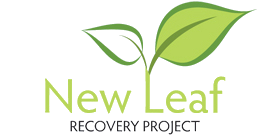Why Do Teens Turn to Drugs?

Understanding Youth & Recreational Drug Use
When it comes to teen drug use, people are often quick to judge. Whether it’s the notion that it’s only the ‘bad’ kids that do drugs, or it’s just a rebellious ‘phase’, there is a need to debunk the myths around teen drug use so that we can better understand and effectively address this issue.
At New Leaf Recovery, we understand that addiction doesn’t begin in a vacuum-and this is just as true for teenagers as it is for adults. Teen substance use isn’t simply a matter of poor choices. It’s often a cry for help, a way to cope, or simply an attempt to navigate the challenges of puberty and growing up.
In this blog, we’ll explore some of the most common reasons young people turn to drugs, challenge the harmful myths that often surround the topic, and highlight how positive change can be brought about.

Debunking Myths Around Teen Drug Use
Before diving into the ‘why’, it’s worth unpacking some of the most common myths around teens and drugs:
“Only ‘bad’ kids do drugs.”
There is a common myth that it is only the ‘bad’ kids that do drugs, and these teens are a corruptive force on the ‘good’ kids. However, this only polarises the issue on a moral level, ignoring the true complexity of the issue.
Teens are not inherently “bad” if they do drugs-even high-achieving students, athletes, and teens from supportive families can all be vulnerable to drug use. And often, the ‘troubled’ kids turn to drugs because they are just that – ‘troubled’ by circumstances out of their control, such as difficult situations at home, parental divorces, neglect, and other mental health challenges. It’s not a case of either being “good” or “bad”, it’s often more about unmet emotional needs.
“They’re just trying to be rebellious.”
Many teens don’t use substances to rebel, but to cope with anxiety, achieve social acceptance, or simply to experiment. Rebellion may be the surface-level appearance to parents, but beneath it is often a more nuanced explanation, such as a mental health struggle, a desire to fit in, or a need to feel something new.
“Talking about drugs will just encourage them.”
Avoiding the topic doesn’t prevent drug use, it only prevents proper education on the risks and dangers. Open, honest conversations about substances, risks, and peer pressure can help make young people to make better, more informed choices. Silence only helps to create stigma.
These myths tend to oversimplify the issue and place blame where understanding is needed most. By shifting the narrative, we can start having more compassionate, productive conversations-and support young people at a time in their lives when they need it most. Contact Our Team Today on 0300 999 0330
So Why Do Teens Turn to Drugs?
Understanding the reasons behind teen drug use is essential if we want to address it effectively. Below are some of the most common motivators:
1. They are Simply Curious
Teenagers are naturally curious, and part of adolescence is pushing boundaries. Some try substances simply because they want to try something new, or because they see them portrayed as glamorous or harmless in pop culture or social media.
For many teens, drug use will remain nothing more than casual experimentation. It’s therefore important not to be too alarmed if you suspect your teenager might be experimenting with drugs. However, if teens are regularly turning to drugs to achieve a sense of emotional release, then this can pose serious risks further down the line.
If drugs are being used to fill an emotional gap or to ease emotional pain, then teens may get used to this feeling and start to rely on it to achieve a sense of escape. It’s therefore important to look out for the signs that experimental drug use might be turning into a long-term habit.
2. To Achieve Emotional Release
Following on from this, many young people turn to drugs because they don’t know how else to cope with difficult emotions. Whether it’s anxiety or trauma, or the feelings that can arise from social isolation or family neglect, many teens will turn to drugs as a form of escape from these emotions.
Rather than “just having fun,” they may be self-medicating-trying to manage something they may not fully understand or have the means to express in other ways.
Understanding these reasons and putting in place other, healthier coping mechanisms is therefore vital for young people and can help prevent drug use from spiralling into dependency.
3. To Escape from Difficult Home Situations
Family conflict, abuse, neglect, bullying, or identity struggles can all drive a teen to seek relief or escape. Drugs can become a form of escapism from these troubling life circumstances, a way to distance themselves from pain that they don’t know how to deal with.
It’s therefore vital to ensure that young people’s emotional needs are being met, so that they don’t have to turn to drugs in order to fill the emotional gap that lies within.
4. Peer Pressure and the Need to Belong
The desire to fit in is a powerful motivator during teen years and is often overlooked as a core reason for recreational drug use. When friends or social groups experiment with drugs, it can be difficult for a young person to say no, as this puts them at risk of social isolation. For some, using drugs may feel like the only way to be accepted.
Sympathy for the social situation of teens is also important if we wish to understand this issue better.
5. Stress and High Expectations
Whether it’s academic pressure, extracurricular performance, or family expectations, young people today are under more stress than ever before. Some turn to substances like cannabis, alcohol, or even stimulants as a way to “take the edge off” or help them keep up.
This challenge is especially common in high-achieving teens, where outward success often hides inner struggle.
What Teens Need Instead
Understanding the why behind teen drug use isn’t about making judgements-it’s about creating a space for young people to be heard. If we want to reduce substance use among young people, we need to start by offering them what they need: support, connection, and the right tools for navigating life’s many challenges.
Here’s what that support can look like:
1. Open, Non-Judgmental Communication
Teens need safe spaces where they feel heard, not judged. This means shifting the conversation from blame to curiosity. Instead of “Why would you do that?”, ask, “What’s going on that made you feel like you needed to escape?” When young people feel they can talk honestly, they’re far more likely to ask for help when they need it.
2. Emotional Literacy and Coping Tools
Learning to manage big emotions is one of the most important skills any teen can develop. But many haven’t been shown how. Rather than shaming drug use, we should be equipping young people with tools like mindfulness, emotional regulation strategies, and healthy outlets like sport or hobbies, giving them alternatives that actually work.
3. Strong Role Models and Positive Influence
Whether it’s a parent, teacher, coach, or therapist, young people need people who genuinely care about them. Having trusted adults who listen, encourage, and guide them without judgment can make a world of difference-and can often be the key factor that helps them stay grounded when life gets tough.
4. Mental Health Support
We must start treating teen drug use and mental health together, not as separate issues. Anxiety, depression, ADHD, trauma-these are often underlying drivers of substance use. Giving young people access to therapy and early mental health support can prevent emotional pain from turning into a dependency.
5. A Sense of Belonging
Every teen wants to feel like they belong somewhere. Group activities, creative outlets, community projects, or simply connecting with others who share similar values or struggles can foster a sense of purpose and identity. When young people feel connected, they’re less likely to seek out artificial highs to feel okay. Seek Support At New Leaf on 0300 999 0330
Why Do Teens Turn to Drugs: Compassion is the Starting Point
At New Leaf Recovery, we know that recovery and prevention start with compassion. Teen drug use isn’t a moral failing-it’s often a signal that something deeper needs to be addressed. By listening, supporting, and understanding the pressures young people face, we can create a world where young people don’t have to turn to drugs in the first place. Call Us Today: 0300 999 0330
Receive a Free Call Back
"*" indicates required fields
A Complete Recovery Journey. From your initial enquiry, all the way through treatment and beyond with ongoing support, New Leaf Recovery are there to guide and support you.
New Leaf offers a complete journey of treatment, from initial detoxification and rehabilitation to ongoing support, including aftercare, family support, and beyond into long-term recovery.
Getting the right accommodation enables us to provide the right backdrop for our recovery methods. Any form of rehabilitation needs to happen in a safe, comfortable, secure and friendly environment.
Receive a Free Call Back
"*" indicates required fields










